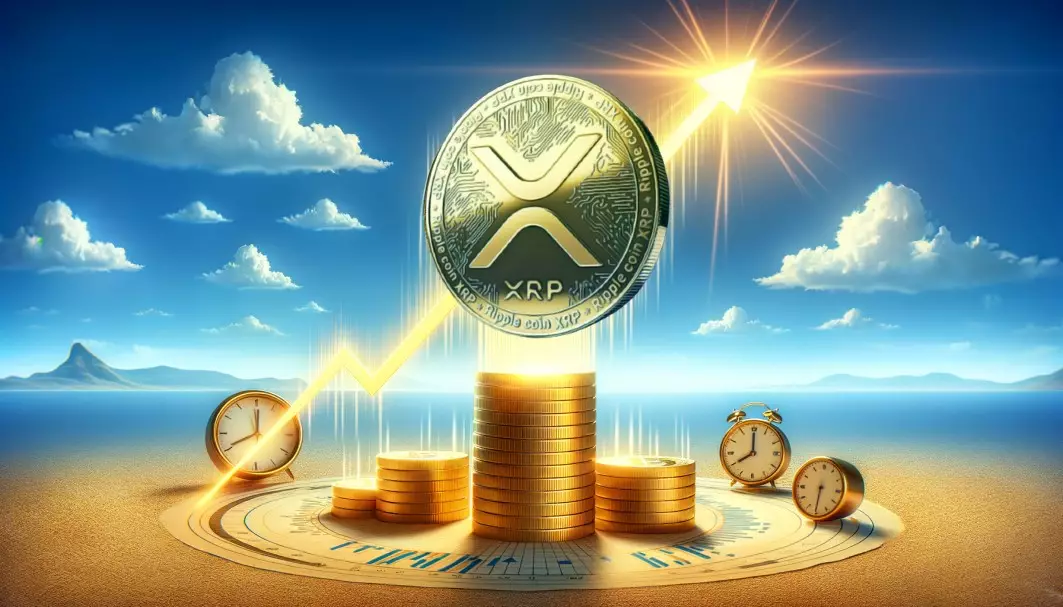The XRP community has been buzzing with discussions about Ripple’s escrowed XRP funds and the potential of burning them. This topic has gained attention due to the current lackluster price action of XRP. Former Ripple Director Matt Hamilton recently shared an idea on how Ripple could burn its XRP holdings in escrow lockups, sparking further conversation within the community. However, it is crucial to analyze this concept critically and understand the implications it may have on the price of XRP.
Hamilton’s suggestion revolves around disabling the master key on the destination account that typically receives escrow funds. By doing so, the XRP tokens could become inaccessible once released from escrow, effectively achieving the same outcome as burning them. While the idea seems plausible, it is essential to note that Ripple would require the approval of validators on the XRP Ledger before implementing such a change. This raises questions about the feasibility of Ripple solely deciding to burn the escrowed funds without the validators’ agreement.
The Role of Validators and Code Alteration
The discussion surrounding the possibility of burning the escrowed funds implies that these funds are encoded on the XRP Ledger. As a result, any modification or burning of these funds would necessitate Ripple seeking permission from the validators to alter the code. However, Hamilton’s suggestion primarily focuses on Ripple disabling access to the destination account rather than altering the code. This distinction highlights the complexities Ripple would face in attempting to burn the escrowed funds.
Considerations for Ripple
Ripple burning its escrowed funds undoubtedly captures the attention of the XRP community, particularly in light of recent claims that Ripple intentionally suppresses the price of XRP. There may be calls for Ripple to burn some of the tokens as a show of commitment to XRP’s growth. Nevertheless, it is crucial to recognize that this process is not straightforward, and its impact on XRP’s price remains uncertain.
It is worth noting that Ripple’s XRP holdings, including the escrowed funds, are not part of the tokens available on the open market. This indicates that burning these specific funds might not exert significant influence on XRP’s price in the larger market. Moreover, it has been reported that Ripple’s XRP transactions do not impact prices on crypto exchanges. This further suggests that the burning of escrowed funds may not directly impact XRP’s price action.
Ripple’s Approach to XRP Stabilization
Instead of burning their XRP holdings, Ripple has emphasized stability in the XRP market. To achieve this, they return most of their unlocked tokens to escrow. This approach aims to prevent sudden token releases that may disrupt market dynamics and potentially harm XRP’s price. It is likely that Ripple has chosen not to burn the escrowed funds owing to this focus on providing stability to the XRP ecosystem.
While the idea of Ripple burning its escrowed XRP funds may generate interest within the XRP community, it is essential to acknowledge the complexities and uncertainties surrounding such a process. Ripple would need validators’ approval to alter the code or disable access to the destination account. Moreover, the impact of burning escrowed funds on XRP’s price seems limited due to Ripple’s XRP holdings being distinct from open market tokens. As Ripple prioritizes stability, returning unlocked tokens to escrow remains their favored approach. As with any investment decision, it is crucial to conduct thorough research and analysis before making any investment choices in the cryptocurrency market.

